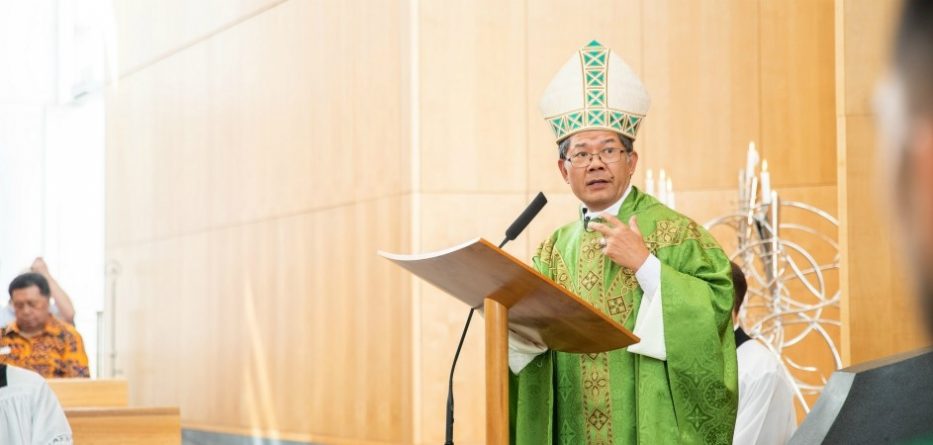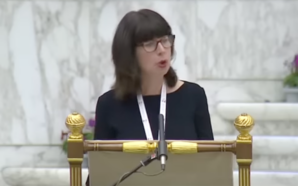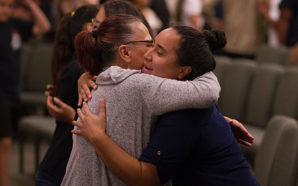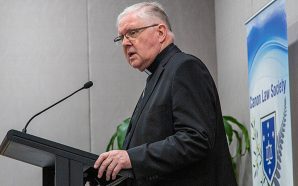Most Reverend Vincent Long Van Nguyen OFM Conv DD STL, Bishop of Parramatta
Homily for the 15th Sunday in Ordinary Time Year C 2019 at St Patrick’s Cathedral, Parramatta, 14 July 2019
Readings: Deut 30:10-14; Col 1:15-20; Luke 10:25-37
14 July 2019
Called to be neighbour to those in need
Dear friends,
It is great to be back among you after a trip to Rome and some quality time spent with my elderly mother in Melbourne. I feel energised by the meeting with Pope Francis who is the true embodiment of a poor, humble and yet hope-filled servant Church.
I also feel energised by the diocesan forum held yesterday with a view to listening, discerning and envisioning together the roadmap for the future of our diocese.
We embrace the call to go out into the deep, with a commitment to walk the synodal journey towards conversion, renewal and reform, so that we can be a more Christ-centred Church for the world, especially for our brothers and sisters who are in need of recognition, acceptance, inclusion and love.
This is the essence of the scriptural lesson for this Sunday. In the first reading, Moses instructs the people as they journey towards the Promise Land. After the enemies have been routed, they enjoy a period of peace, stability and prosperity. There is a real temptation, however, to grow comfortable and forget that they are the People of God in mission.
Moses warns them against settled securities and reminds them of the covenant relationship that would define them as the chosen people.
He tells them: “Obey the voice of the Lord, keep his laws and commandments and you shall return to him with all your heart and soul”. In the wider context, this means to live in a loving relationship with God and one’s neighbour.
Elsewhere, Moses would exhort the people not to be a society of enslavement and oppression that they experienced in Egypt. Instead they are to form a model society characterised by freedom, justice, solidarity, compassion and care for the immigrants, widows and orphans.
The Parable of the Good Samaritan also challenges us to recognise and honour God in the most vulnerable. However, more than fulfilling the Mosaic law of love thy neighbour, Jesus teaches us some home truths that are truly confronting and incisive. Samaritans were considered outsiders and outcasts by ordinary Jews.
Yet in the parable, it was the Samaritan who was the unlikely hero. For he showed love and compassion to the person in need as opposed to the priest and Levite who failed the test of human solidarity.
Thus, in crafting the characters in their cultural and religious context, Jesus challenged the prevailing assumptions and stereotyped attitudes.
He turned the presumed order of moral goodness upside down. The holders of tradition failed the test of neighbourliness while the outcast proved himself an unlikely champion of basic human decency, mercy and compassion.
We can no longer understand the parable only in terms of being kind to those in need. It is an incisive lesson that cuts our prejudice to the quick. The lawyer who posed the question to Jesus “who is my neighbour?” went away with much more than what he had bargained for.
He was challenged to be the neighbour not only to his own kin and but to be one like the Samaritan. It would have been a profound and indeed humbling revelation: The villain had become a hero and vice versa. The meaning of goodness, humanity, moral uprightness had been redefined. The boundaries of acceptance, inclusion and love had been extended. Jesus had presented to him a radical new way of seeing, acting and relating.
What does it mean for us who have listened to the parable again today in the context of our lives and relationships? Are we similarly challenged in our thinking, attitudes and behaviour? What are the assumptions and prejudices in society and in each of us that need to be questioned by the confronting and incisive lesson of the Gospel? Who are the Samaritans of our time? Who are those that are considered outsiders and therefore not entitled to what we are entitled to?
This Sunday is designated as Seafarers Sunday. We are mindful of these workers and those who support them in our local ports. Sometimes seafarers are left in dire situations just like the man who was left half-dead on the road to Jericho.
In our world today some governments, ship owners and other organisations and people involved in the shipping industry find it very easy to pass by on the side of the road and ignore the needs of seafarers.
We can respond to this by showing compassionate action and human solidarity. The Apostleship of the Sea is only able to exist and serve our seafaring neighbours because of the generosity and support from people across the world, people who have decided to recognise the seafarer as their neighbour.
Friends,
Jesus challenges us that to journey to the God of love, inclusion and compassion, we need to make that missionary journey to our brothers and sisters. We cannot pass by this God in the most vulnerable in our community and beyond.
May we learn to be true neighbours to those in need.
May we grow to the radical new way of thinking, acting and relating that will truly reflect the vision of God in Christ.








